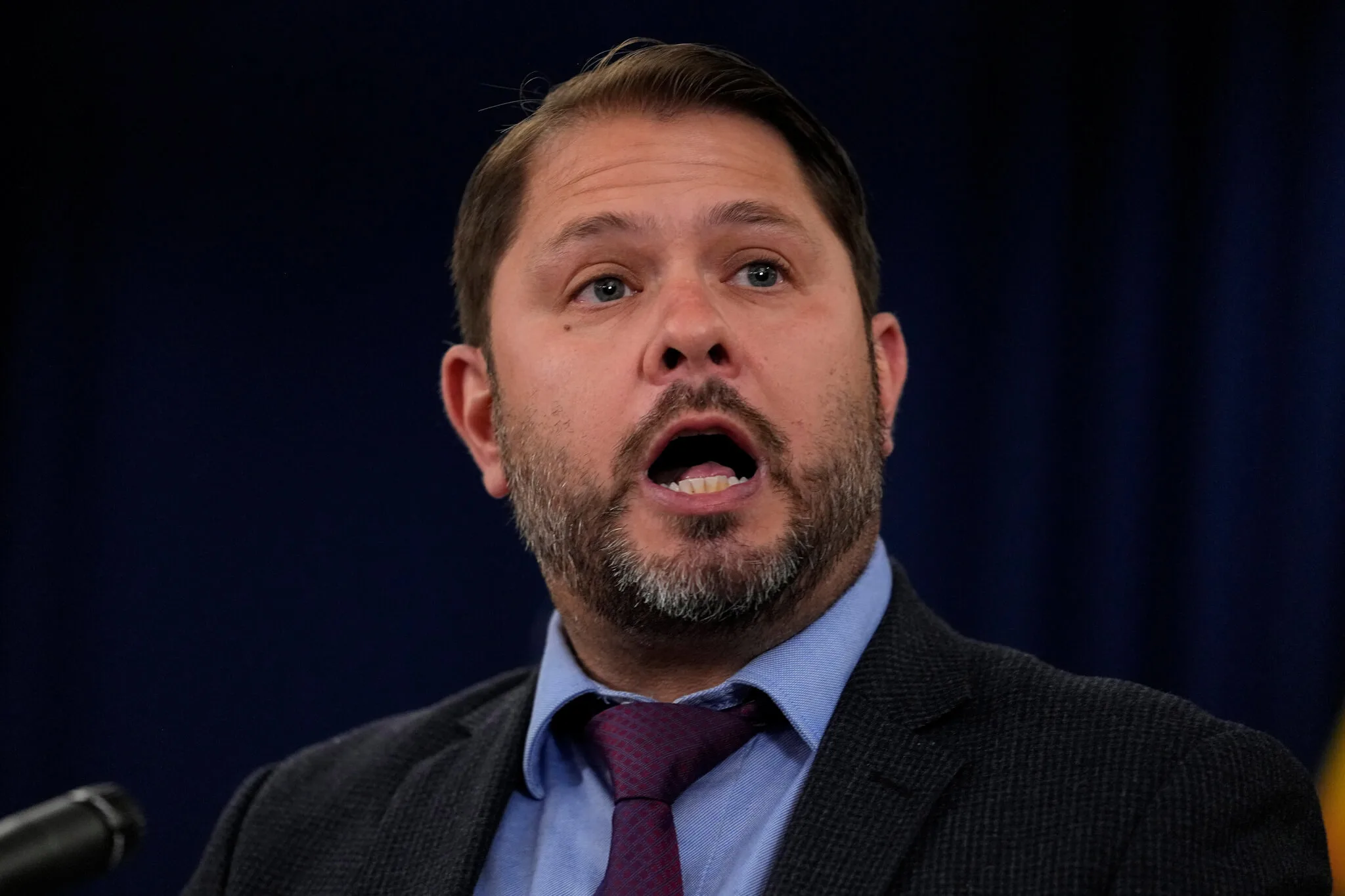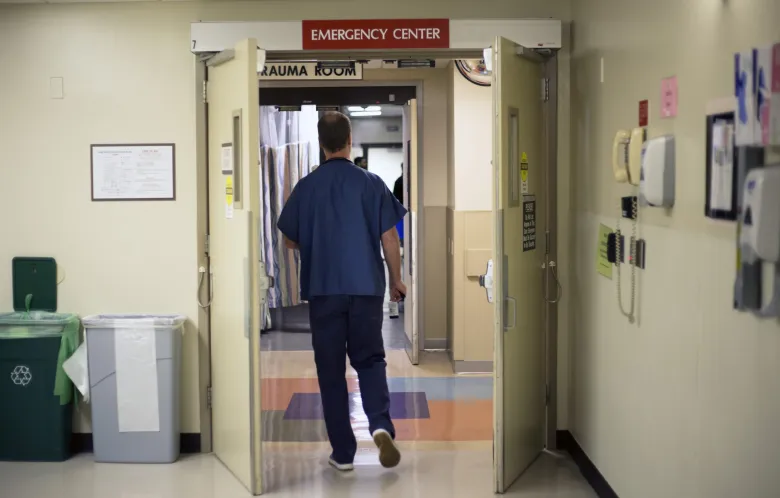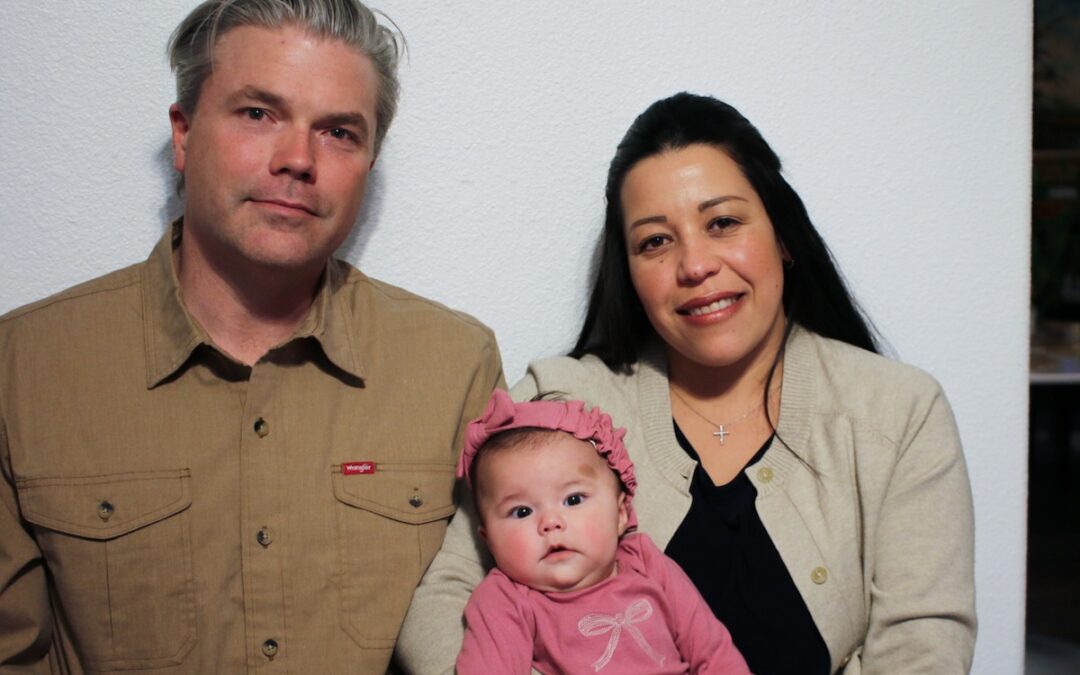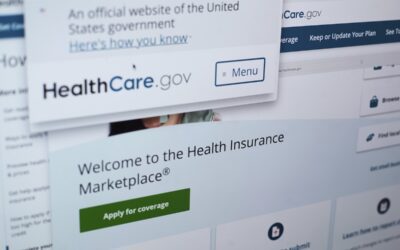
U.S. Rep. Ruben Gallego, D-Ariz., speaks at the Capitol, Thursday, April 6, 2023, in Phoenix. Gallego was discussing newly announced water conservation funding for Gila River Indian Community and water users across the Colorado River Basin aimed to protect the stability and sustainability of the Colorado River System. (AP Photo/Matt York)
Representatives Ruben Gallego (D-Arizona) and Elissa Slotkin (D-Michigan) teamed up this week to introduce the Lower Drug Costs for Families Act, a bill which would hold Big Pharma accountable for price gouging.
The bill would require drug companies to pay a penalty if they raise prices faster than inflation. Thanks to last year’s Inflation Reduction Act, the federal government can limit drug price increases faster than the rate of inflation for drugs purchased and used by people on Medicare.
But Gallego and Slotkin’s bill would expand this to include drugs purchased and used by people with private health insurance. Under the proposal, all penalties paid by companies would go towards preserving the Medicare Trust fund. One estimate suggests it could save the federal government $34 billion over the next 10 years.
“For years, Arizonans have been struggling to afford prescription drug prices that have skyrocketed far above inflation,” Gallego, who is running for Senate in 2024, said in a statement. “With the historic Inflation Reduction Act, we were able to put an end to drug price gouging for seniors. Now, it’s time to expand those protections to all Arizonans. That’s exactly what my bill does.”
Outrage over prescription drug price-gouging is nothing new.
As philanthropic organization Arnold Ventures notes, pharmaceutical companies have “gamed the U.S. patent system and engaged in anti-competitive behaviors to drive up prices” for decades.
A recent report from the Senate Health, Education, Labor, and Pensions Committee also outlined how “pharmaceutical corporations use taxpayer-funded research to develop products to sell back to those same taxpayers for exorbitant profits,” and how “U.S. taxpayers virtually always pay more than people in other countries for treatments that [government] scientists helped invent.”
For example, Prezista, an HIV medication manufactured by Johnson & Johnson, has a list price of $25,000 in the United States. In Germany, the list price for that same medication is $4,000. Prezcobix, another HIV medication manufactured by Johnson & Johnson, has a list price of $29,000 in the U.S. In Japan, the list price is $5,000.
This type of price gouging isn’t exclusive to HIV medication either. For years, the three major insulin makers steadily raised the prices of the life-saving medication—so much so that over a 20-year period, the cost of insulin increased by an astonishing 600%. These price hikes came as the cost of producing insulin remained stable, between $3.69 and $6.16 a vial, according to one 2018 study.
The high costs of drugs have made it difficult for many Americans to afford the medication they need to live—so difficult in fact that 17% of insulin users reported either delaying buying insulin, taking less than needed, or skipping a dose due to cost reasons. This can lead to diabetic ketoacidosis, a life-threatening complication that occurs when the body doesn’t have enough insulin.
While Americans are struggling to afford the medication they need to live, these pharmaceutical companies are raking in money. Pfizer reported revenues of over $100 billion in 2022 alone and Merck’s annual revenue last year was nearly $60 billion.
The Lower Drug Costs for Families Act has been endorsed by Patients for Affordable Drugs Now, the American Federation of State, Communications Workers of America (CWA), the American Federation of Teachers, and more. Sen. Catherine Cortez Masto (D-Nevada) introduced the Senate version of Gallego and Slotkin’s bill earlier this year.

What are Arizona’s safest hospitals? These 9 got a D in latest report
A nonprofit focused on improving hospital safety and quality in the U.S. gave nine Arizona hospitals an "A" grade in its biennial hospital safety...

Officials investigating outbreak of Shiga toxin, possible connection to the Arizona State Fair
PHOENIX – The 17-year-old patient, clad in a light blue, patterned hospital gown and her pink and purple bonnet, sat in a hospital chair attached to...

‘Ghost networks’ leave Arizona families searching for behavioral health care
PHOENIX - Joseph DeMarco was about to turn 19 when he first showed the signs of a severe mental health condition. By then, his family had already...

Flagstaff family with baby sickened by infantile botulism sues ByHeart over recalled formula
The parents of at least two babies sickened in an infantile botulism outbreak are suing the makers of the ByHeart baby formula at the heart of a...




